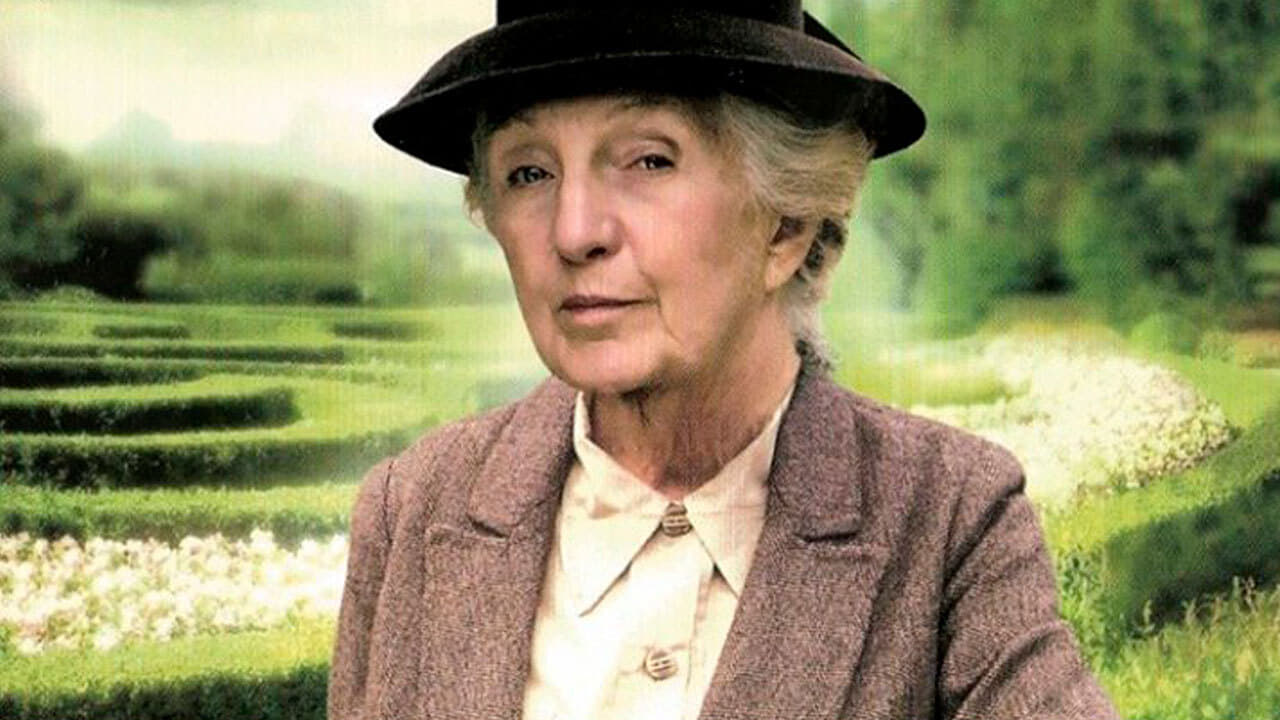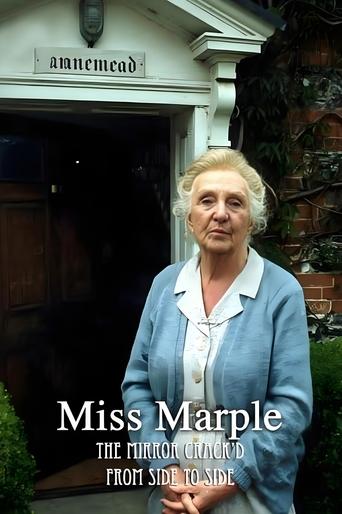

Very well executed
... View MoreIt's a good bad... and worth a popcorn matinée. While it's easy to lament what could have been...
... View MoreStrong acting helps the film overcome an uncertain premise and create characters that hold our attention absolutely.
... View MoreAn old-fashioned movie made with new-fashioned finesse.
... View MoreHard to pin down the year of this episode from autos. Many anachronistic models spanning more than one decade-more like 2decades. Did not spoil the episode for me as they were great to see and so many super clean, no dust or rain spots. I loved them all. 2018 now so all were vintage today.
... View MoreThe poor village of Saint Mary Mead is invaded by some American actors and actresses for the shooting of a film. The main actress was actually raised in the village before moving to America. It's obvious Miss Marple does not consider cinema actors as very respectable people, though that is no reason to kill them. But apparently it is by far enough to justify their suicide. The story is sordid about the past, but that is nearly nothing when compared with the sordidness of the present they impose onto themselves and one another. Working conditions of actors and actresses are horrific and producers are the worst exploiters that can exist and they deserve our full and complete condescending contempt. Add into that picture a couple of adopted children, rejected afterwards, and then a real child reduced to an incurable fate by German measles during the pregnancy and you have the squalid reality of this case. So it is nearly nice of Jane Marple to overlook the slight detail that the death of that actress was not entirely natural though it looks suicidal, or maybe not entirely suicidal though it looks absolutely natural, or whatever other mixture with artificial added in the lot. In one word good riddance and just hope God is just as understanding as we are not.Dr Jacques COULARDEAU
... View MoreThe village is all of a buzz at the news that the Hall has been bought by American film star Marina Greg and her husband Jason Rudd. When Greg throws a garden party of the locals it ends badly whenever a local woman from the St John's suddenly falls ill and dies. The autopsy finds that she has been poisoned and that it most likely came from a drink a drink intended for Marina Greg. With such a high profile murder on his hands, Superintendent Slack calls for help in the form of DI Craddock, who also happens to be the nephew of one Miss Marple. With her insightful mind and his detective work the future is bright but the ongoing threats against Greg shows that time is not on their side.It is ironic that some fans of the BBC's Miss Marple don't rate this film as highly as some others because personally I think this is one of the more enjoyable ones I have seen recently, probably for the same reasons that others don't. It might be the presence of American accents, or the use of the film world as a backdrop or the use of humour within the plot and characters but somehow this film had more life and energy to it than some of the other films. The plot moves along quickly and we have the death within thirty minutes rather than the usual hour; this means we spent little time dawdling before the story starts. After this point it keeps up a good pace and is enjoyable from start to finish. The mystery itself benefits from the pace and avoids the trap of being deadly dull, becoming something that feels a bit lighter and more entertaining although fans of CSI will still struggle with the rather sedentary pace it still has in common with the rest of the series.The addition of comedy to the character of Miss Marple is welcome, as is the way she is a bit edgy and rude at times (well, by comparison anyway). Hickson takes to this well playing off her housekeeper well and having a frustration that I hadn't seen before. Castle works well as her nephew and leads the investigation well as a sort of sidekick to her. The presence of Bloom and Newman add a bit of class to proceedings and by virtue of being American help to loosen the rather tight corset that this series always wore. I thought Gregory's (Fenn) accent was awful but when I found out he was American I realised that it must just be an all round bad performance rather a problem with accents. Support is roundly good and all do their bit to keep the film moving by never being too stiff or "English".Overall this is not the film that will win fans of the MTV mystery series (CSI etc) but it is one of the lively films from the BBC Miss Marple series. The story, characters and tone all work together to produce a rather flowing story that has more interest and pace to it than I have seen in other Marple films and it made it more fun than usual.
... View MoreIt may not be the best of the bunch but it's still a good TV movie. A nice touch is the fact that we see several faces that we saw in Murder At The Vicarage an earlier movie of this series. There is Dolly Bantrey ( now a widow), there is the vicar ( he was not the vicar in Murder at the vicarage but seems to have made a promotion) and some more characters. This one is surely better than the movie with Liz Taylor and Angela Lansbury. This was the last one of the series and it's a shame they did not continue it with movies of some of the Miss Marple short stories. Hickson was - up till now - the best Miss Marple. Let's hope they 'll find another person just as good and still use the short stories!
... View More